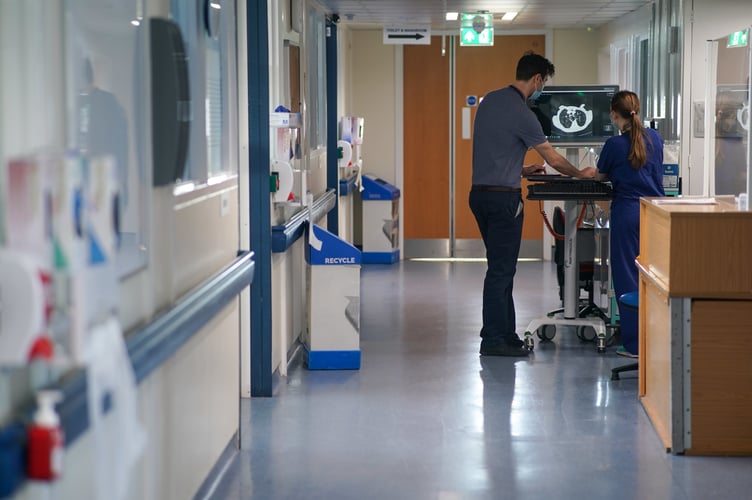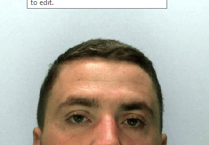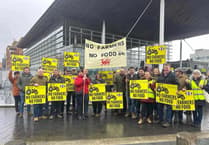Tens of thousands of patients were waiting for routine treatment at the Wye Valley Trust in December, figures show.
A health think tank said while the overall waiting list appears to be stabilising, “the Prime Minister’s pledge to bring the waiting list down will not be met”.
NHS England figures show 22,907 patients were waiting for non-urgent elective operations or treatment at Wye Valley NHS Trust at the end of December – up slightly from 22,829 in November, and 21,117 in December 2022.
Of those, 1,350 (6%) had been waiting for longer than a year.
The median waiting time from referral at an NHS Trust to treatment at the Wye Valley Trust was 15 weeks at the end of December – up from 14 weeks in November.
Nationally, 7.6 million people were waiting to start treatment at the end of December – slightly down from 7.61 million in November and the third consecutive fall.
Sarah Scobie, acting director of research at the Nuffield Trust, said: “While 6,000 is only a very small fall, it has been achieved despite industrial action and winter pressures.”
However, she added the figures show the Prime Minister’s pledge to bring the waiting list down will not be met.
“In fact, today’s figures reveal that there are almost 400,000 more outstanding treatments now than when Sunak’s pledge was made last January.
“While the overall waiting list for treatments or operations appears to be stabilising, it is hard to see a route to making faster and more significant progress, with staff already working flat out and under immense pressure.”
Separate figures show 1.6 million patients in England were waiting for a key diagnostic test in December – the same as in November.
At the Wye Valley Trust, 4,127 patients were waiting for one of 13 standard tests, such as an MRI scan, non-obstetric ultrasound or gastroscopy at this time.
Of them, 551 (13%) had been waiting for at least six weeks.
Other figures from NHS England show that 41 out of 67 cancer patients urgently referred to the Wye Valley Trust in December received treatment within two months of their referral.
A month previously – when 92 patients were referred – 62 were treated within 62 days.
In December 2022, 55 out of 81 patients were treated within this period.
Professor Pat Price, co-founder of the #CatchUpWithCancer campaign, said the King has demonstrated transparency, leadership, and courage in his reaction to his recent diagnosis and has given cancer an increased profile, which is “a timely reminder that the disease will touch every family across the land as one in two of us will be diagnosed”.
He added: “In light of the continuing dire state of cancer performance in our country confirmed again by these figures, we are urging the Government to show similar qualities and adopt a new ‘get it done’ approach.
“If ever there was a time for a serious new priority on cancer, backed by radical action, it must be now.”
A Department of Health and Social Care spokesperson said: “Cutting waiting lists is one of the Government’s top five priorities and, despite winter pressures and the impact of industrial action, overall NHS waiting lists have decreased for the third month in a row.
“We’re determined to continue improving patient care, having already delivered on our promise to create 5,000 extra permanent hospital beds and 10,000 hospital at home beds, freeing up capacity and cutting waiting times.”




